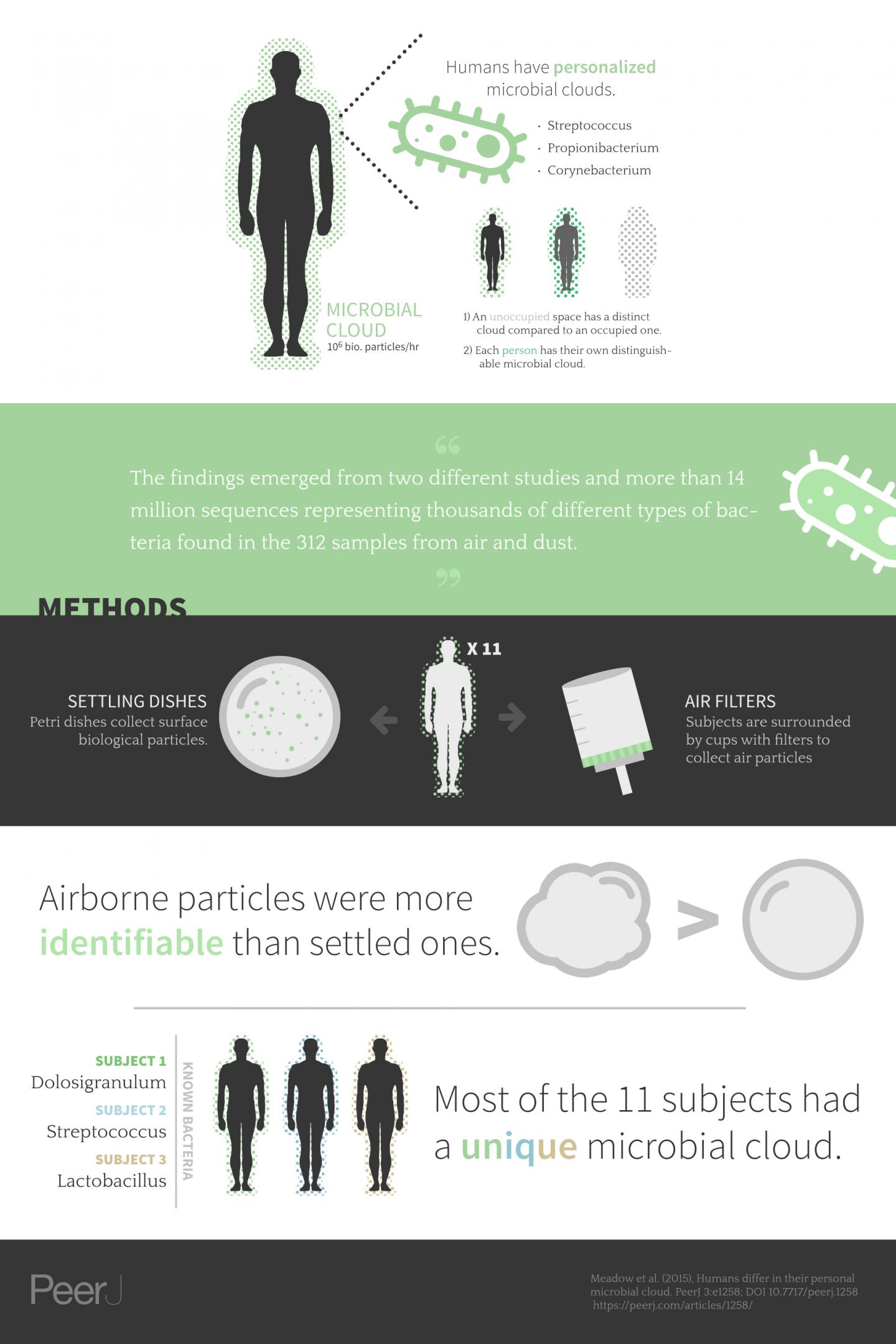Bad news, hypochondriacs: You’re walking in a massive cloud of bacteria. In fact, it’s kinda an extension of your body, and no amount of showering will rid you of it. Even better: It grew out of your mouth, poop and skin.
The personal “microbial cloud,” described today in the journal Peer J, is just the latest expression of the human microbiome, those tens of trillions of microbial consorts that live on us and inside of us, outnumbering our own bodily cells ten to one. What’s fascinating about The Cloud is how it differs from person to person — like an ephemeral fingerprint that you leave on every building you enter and ever other human you get close to.
“Our results confirm that an occupied space is microbially distinct from an unoccupied one, and demonstrate for the first time that individuals release their own personalised microbial cloud,” microbial ecologist James Meadow and colleagues at the University of Oregon write.
To arrive at that conclusion, the researchers stuck 11 human subjects, aged 20 to 33, in heavily sanitised experimental chambers and collected air samples at regular intervals. They extracted DNA from airborne particles and sequenced the 16S gene, a genetic barcode that distinguishes different groups of bacteria. The researchers then compared the microbial communities in occupied chambers with unoccupied chambers, supply and exhaust air sources.

Within 1.5 to 4 hours, the air in each occupied chamber was filled with a rich array of bacteria. Most of these critters are, big shocker, organisms that live on our skin or in our mouths. Things that we exhale or fart or that flake off our bodies as we shed. (Ever wonder where all the dust in your apartment comes from? It’s that skin / bacteria cocktail you’re exuding all the time, you disgusting human!)
What did surprise the researchers is how distinct each subject’s microbial cloud was. While many of the same critters — things like Streptococcus, Propionibacterium and Corynebacterium — floated around everyone, most of the subjects’ clouds were statistically distinct in terms of the relative abundance of these different organisms.
Begging the question: Can our clouds be used as a fingerprint? Say the researchers:
“The potential identifiability we report for individual personal microbial clouds clearly suggests a forensic application for indoor bioaerosols, for example to detect the past presence of a person in an indoor space. Such applications will certainly require further research; the patterns we found are likely to be more nuanced in a crowd of occupants, in a larger indoor space, or in the presence of resuspended dust. “
In short… maybe! But more we need to do more research to figure out just how long your cloud sticks around after you leave a room and what happens when clouds collide. (I can’t wait until someone comes up with a cool data visualisation of that).
But for the the moment, it’d seem there’s no need to worry about people tracking you via your cloud. Instead, it’s high time to make peace with the fact that your body is really just a giant flesh vessel for a vast ecosystem of organisms we’re only beginning to understand.
[Read the full scientific paper at Peer J]
Follow the author @themadstone
Top image via Shutterstock, poor girl has no idea.
